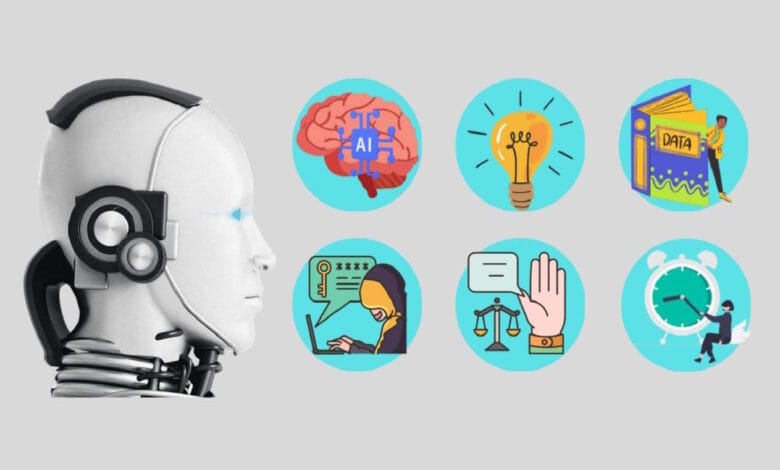Quick Reads
[Quick Read] Ethical AI and Coding: Navigating the Future

This article is part of the ‘AI in the Code Realm’ quick reads series, exploring how AI is reshaping the landscape of software development.
Discussion on AI Ethics in Coding Assistance
- Bias in Code Suggestions: One of the primary ethical concerns is the potential for AI to introduce or perpetuate bias in code. If an AI coding assistant learns from biased datasets, it might suggest algorithms or practices that disadvantage certain groups, whether intentionally or not.
- Intellectual Property: When AI generates code, questions arise about ownership – who owns the code produced by an AI? Is it the developer who prompted the AI, the company behind the AI, or does it fall into a gray area of IP law?
- Responsibility for AI-Generated Errors: If an AI suggests code that leads to security vulnerabilities or bugs, the question of accountability becomes complex. Should the responsibility fall on the developer for not reviewing AI suggestions thoroughly, or does it lie with the AI’s creators for not ensuring the accuracy of their tool?
How Companies are Addressing Privacy, Security, and Ethical Concerns
- Privacy: AI companies are increasingly transparent about data usage, ensuring that code suggestions aren’t based on proprietary or sensitive information from other users. For instance, tools might analyze code without storing it or use local processing to keep data within the developer’s control.
- Example: GitHub Copilot introduced features to respect user privacy by not using public code for training without proper consent.
- Security: There’s a push towards ensuring AI tools don’t introduce security flaws. This includes training AI on secure coding practices and providing developers with security-focused suggestions.
- Example: Google’s Project Zero collaboration with AI development to ensure that AI suggestions adhere to known security best practices.
- Ethical Frameworks: Companies like Anthropic with Claude have emphasized ethical AI by focusing on alignment with human values, safety, and transparency. This involves rigorous testing for biases, ethical training of AI, and providing controls for users.
The Role of Transparency and User Control in AI Development
- Transparency: Developers and users are demanding more insight into how AI assistants make decisions. This involves disclosing what data is used to train AI, the methodologies behind AI’s learning, and how code suggestions are generated.
- Implementation: Some companies now provide detailed documentation or even allow users to see the “thought process” behind AI suggestions through logs or explanation interfaces.
- User Control: Giving developers control over how much they rely on AI, what kinds of suggestions they accept, and the ability to customize AI behavior to align with their ethical or project-specific standards is crucial.
- Example: Allowing users to opt-out of certain data uses or to set preferences for how AI should handle sensitive information.
- Feedback Loops: Continuous feedback from developers helps in refining AI to be more ethical. This includes mechanisms for reporting biased suggestions or other ethical concerns directly to AI developers for improvement.
Broader Ethical Implications
- Job Displacement: There’s an ongoing debate about how AI coding assistants might impact employment in the tech sector. Ethical AI development involves considering how to complement human developers rather than supplant them, possibly by focusing AI on augmenting human creativity rather than just automating routine tasks.
- Education and Skills Shift: As AI takes on more basic coding tasks, there’s a need to educate developers on working with AI, understanding its limitations, and focusing on skills that AI can’t easily replicate, like creative problem-solving or ethical decision-making.
- Global Impact: AI in coding must be considered with a global perspective, ensuring that tools are accessible and beneficial across different cultures and economic contexts, without perpetuating or creating new digital divides.
Future Directions
- Regulatory Frameworks: There’s an increasing call for regulatory frameworks that specifically address AI in software development, ensuring ethical practices are not just voluntary but legally enforced.
- Ethical AI Certification: Similar to how organic products are certified, there might be a future where AI tools are certified for ethical compliance, giving developers a clear choice in supporting ethical technology.
- Community-Driven Ethics: The developer community itself could play a larger role in shaping AI ethics, through open-source projects, ethical coding guidelines, or collective agreements on AI usage in coding.
Navigating the ethical landscape of AI in coding is about balancing technological advancement with moral responsibility, ensuring that as AI becomes more integral to our work, it does so in a way that respects privacy, promotes security, and enhances human dignity and equality.
Quick Read Series: “AI in the Code Realm”
- The Rise of AI Code Assistants: From Automation to Collaboration
- Meet Claude: The Code Whisperer
- The Silicon Giants Respond: AI Strategies of OpenAI, Google, Microsoft, and Meta
- Grok by xAI: More Than Just Code
- The Developer’s New Best Friend: How AI Enhances Coding
- Ethical AI and Coding: Navigating the Future
- The Future of Code with AI: Predictions and Trends
- Competition or Collaboration? The AI Tool Ecosystem
- Hands-On with AI Coding Tools: Practical Tips and Tricks
- Conclusion: The Coder’s New World